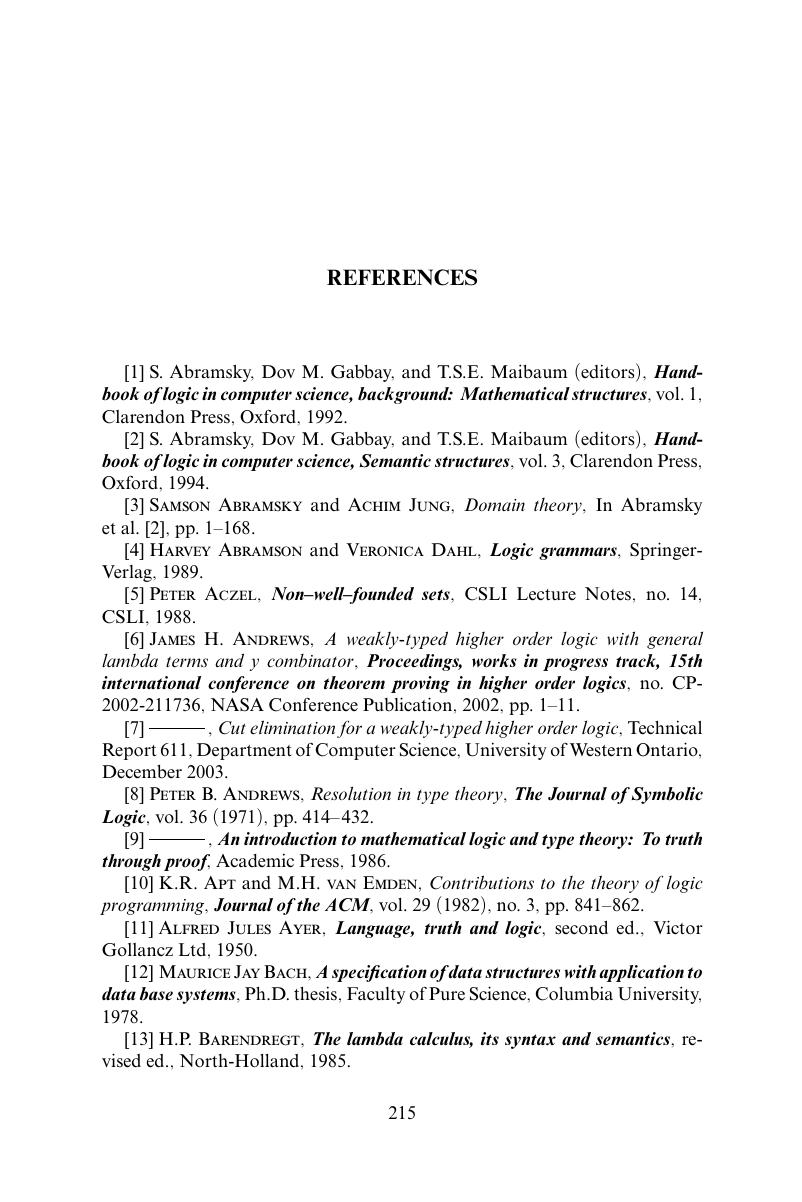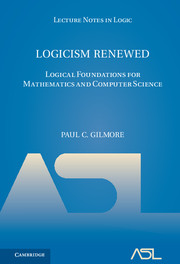Book contents
References
Published online by Cambridge University Press: 30 March 2017
Summary

- Type
- Chapter
- Information
- Logicism RenewedLogical Foundations for Mathematics and Computer Science, pp. 215 - 224Publisher: Cambridge University PressPrint publication year: 2005



